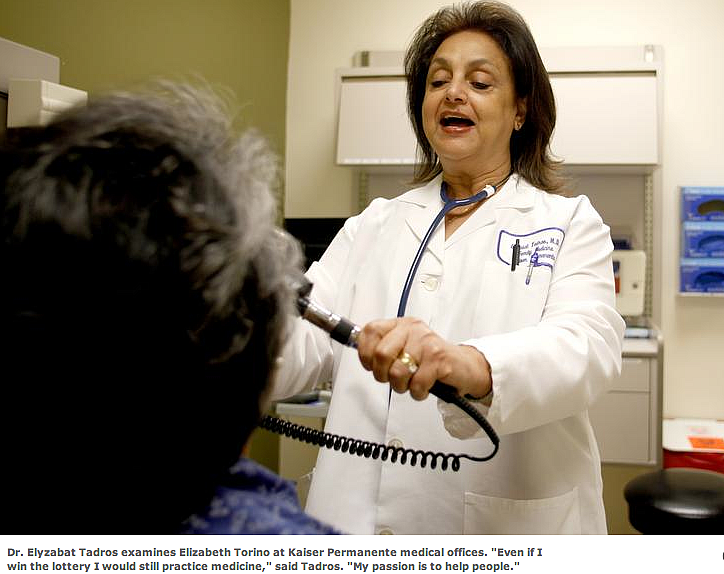Importing Doctors: From Sudan to Bakersfield
Read why the United States imports so many foreign doctors. California fellow Kellie Schmitt completed a multi-piece series on the United States' reliance on foreign-doctors. Physicians from far-flung corners of the globe have ended up practicing medicine in Kern County. These pieces trace the journeys of several international medical graduates -- exploring how doctors from across the world ended up in and around Bakersfield, and what they enjoy about their new lives here.
Part One: More than half of Kern physicians were foreign-schooled
Part Two: Are we creating a foreign brain-drain
Part Three: Pace of foreign-physician influx may slow
Part Four: KMC's multimillion dollar deal with Caribbean school marks part of controversial trend
Part Five: Concerns about the quality of Caribbean schools persist
Part Six: Many American students turn to Caribbean medical schools
Part Seven: Foreign physicians in Kern share their stories - From Burma to Bakersfield
Part Eight: From Sudan to Bakersfield
Part Nine: From the Philippines to McFarland

FROM THE SUDAN TO BAKERSFIELD
Dr. Elyzabat Tadros' journey from her native Sudan to her current home in Bakersfield included stints in Denmark, Ireland and the United Arab Emirates.
"It's been a long journey, and very rewarding," she said from her office at Kaiser Permanente, where she's now chief of the family medicine department.
Tadros grew up in the Sudanese capital Khartoum, the youngest of 11 children in a Catholic family. Her multi-cultural neighborhood fostered a strong social life, with close relationships among neighbors and extended family.
Tadros' family was filled with medical professionals, and becoming a doctor was always part of the plan. At the University of Khartoum she was one of just seven female students in a class of 187.
Without the luxury of high-tech equipment, Tadros sharpened her diagnostic skills there.
In the year or two she practiced at a Sudanese government facility, Tadros saw people from all walks of life, many with tropical disease such as malaria and typhoid. All received free care.
"Patients were really wonderful, and really appreciative," she said. "They have full trust in their doctors, you never find one who says your care wasn't good."
Even if a patient died, the family members would still thank a doctor for the care.
"They say, you did your best," she recalled. "It was God's will."
A scholarship in anesthesiology took her to Denmark. But it wasn't for her.
"I like interacting with patients, but they were all sleeping," she explained.
Tadros opted for OB-GYN instead, and attended a program in Dublin for foreign medical graduates. She then traveled to Abu Dhabi where she joined her husband, whom she had met in the Sudan years before. He was working as an auditor for the government, and she found a physician post in a military hospital.
"It was wonderful, the best time of my life," she said.
The hospital had an efficient, organized system and she earned 65 days paid vacation. She had a full-time Filipino nanny to help with her young children. But, ultimately, she missed her family, many of whom had migrated to the United States.
Tadros decided to begin the arduous process of becoming a U.S. physician.
"All that experience isn't considered," she said. "You have to start from scratch."
An OB-GYN residency would be too tough with three kids plus a 5-month-old baby, so she opted for family medicine. In 1992, she started her residency at Indiana University, and, after graduating, she was proud to become faculty there.
Still, many of her siblings were in Southern California, and she wanted her children to grow up near family. Tadros applied to Kaiser; the only opening at the time was in Bakersfield. She knew Kern County is known for its hot summers, but, then again, so is the Sudan.
In 1999, her international travels came to a rest in Bakersfield, where she settled with her family.
"If you work hard and focus, nothing is impossible," she said. "Though I am a foreign graduate, if you work hard and succeed, people will respect you. You prove yourself."
This article was originally published by The Bakersfield Californian.
